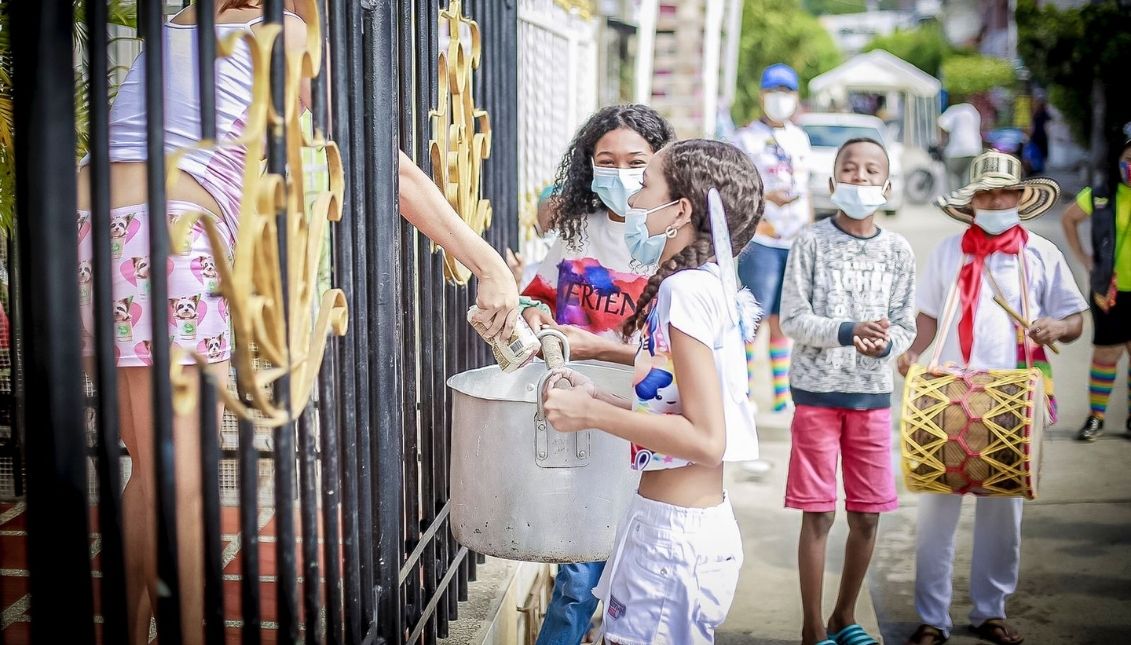
Children from Barrio Chino in Cartagena ask for food to make their sancocho. Photo courtesy: Oscar Contreras
What is the tradition of 'Ángeles Somos' in Cartagena?
Every Nov. 1, Cartageneros take to the streets to ask for food to make a community sancocho in their neighborhoods.
On Nov. 1 in Cartagena, the celebration of the Day of the Saints is accompanied by an event called 'Ángeles Somos,' where children, young people and adults gather from the morning to go around the houses of their neighborhood singing a native song, and they ask for food to make a sancocho (soup) at noon.
"Ángeles Somos del cielo venimos pidiendo limosnas para nosotros mismos. Tintililillo, tintililillo, cinco pesos para mi bolsillo, no te late, no te late saca el bollo del escaparate, no te rías, no te rías que la mochila está vacía, no te escondas, no te escondas que te pego con la olla” ("Angels We are from heaven we come asking for alms for ourselves. Tintililillo, tintililillo, five pesos for my pocket, don't you beat, don't you beat, take the bun out of the window, don't you laugh, don't you laugh that the backpack is empty, don't you hide, don't you hide that I hit you with the pot"), the people sing in Spanish.
The origin of this tradition comes from the time of the Spanish colony and had great importance in the territories dominated by the crown. It was established by Pope Gregory IV, who named Nov. 1 as All Saints' Day as opposed to the witches' night on Oct. 31.
Although the celebration is considered an Intangible Heritage of the Nation, every year, fewer and fewer people go out to ask for food for this traditional sancocho. For this reason, the Corporación Ángeles Somos seeks to improve the living conditions of children and adolescents in the city.
"The most beautiful thing is the enjoyment, the joy that the little girl inside me has, but it is also the rescue of that cartageneidad, the birth of the observatory of childhood and adolescence. It is the possibility for Cartagena to build a public policy where the rights of children, starting with their patrimonial rights, to the city and to culture, are recognized but also that they reach all the children of the nation," explained Rosita Díaz de Paniagua, representative of the Organization, to Radio Nacional de Colombia.
This year, the tradition is strengthened in the city along with the activities of the Independence Commemoration of the 'Corralito de Piedra' for its 210 years of independence, amid folk music, dances, costumes, and of course, many pots full of food for the whole community.


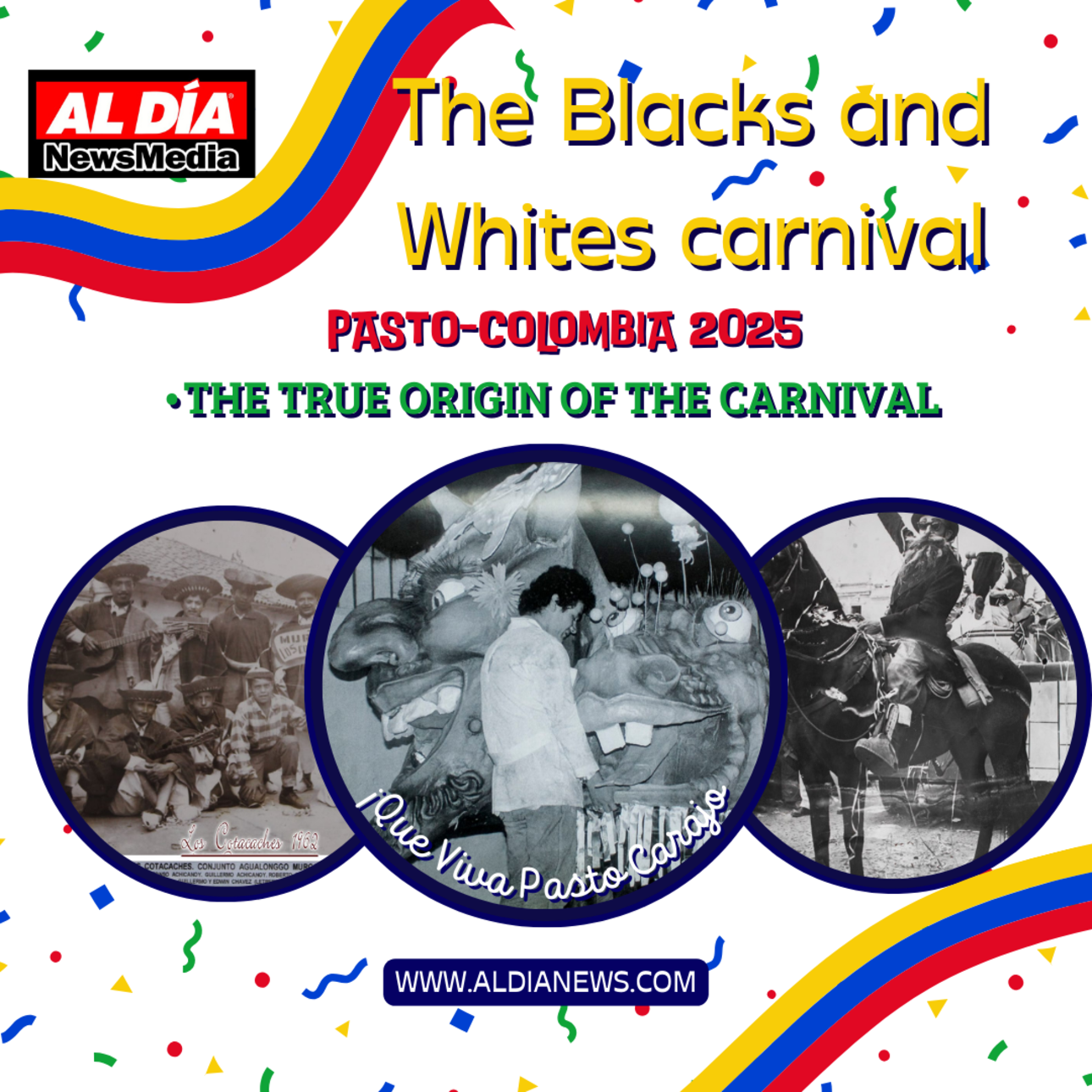
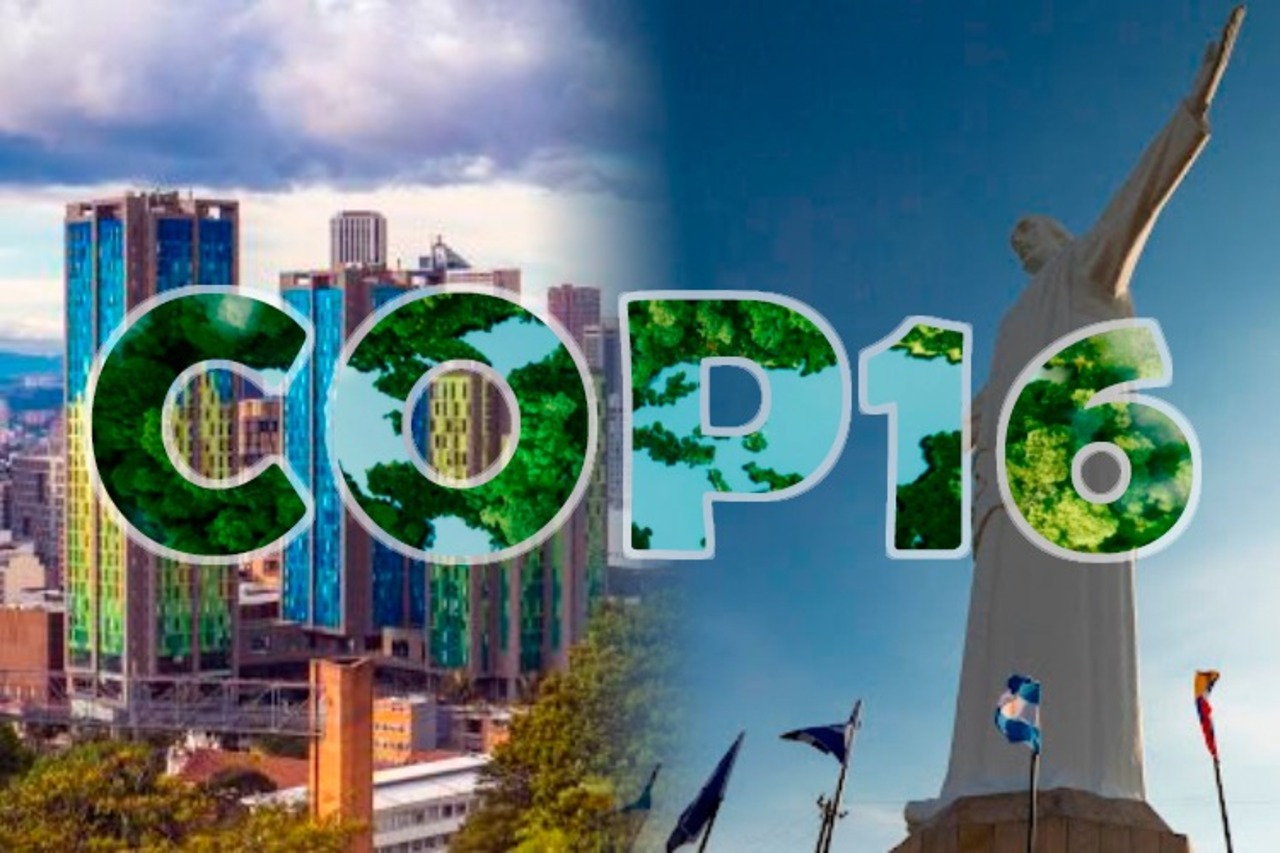
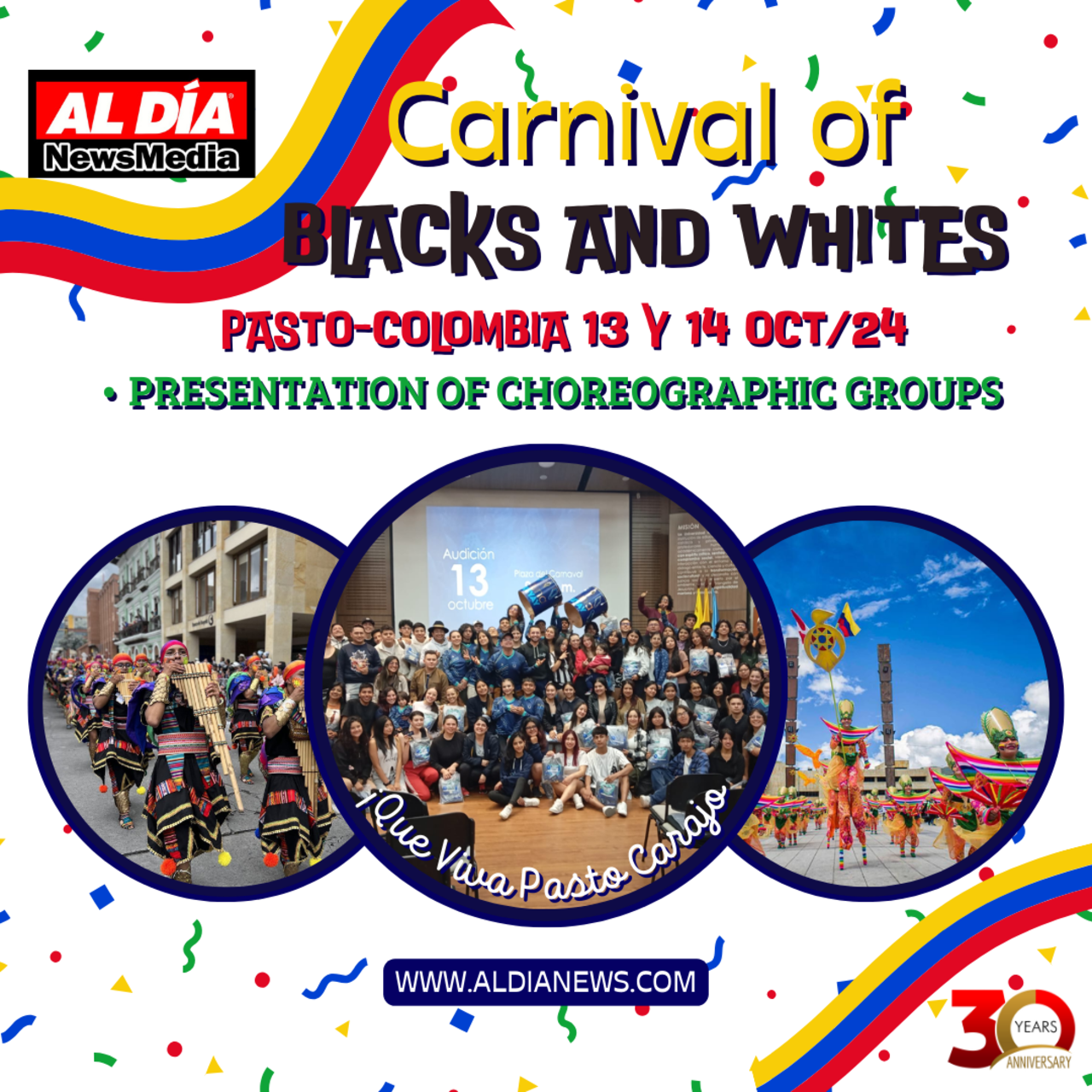

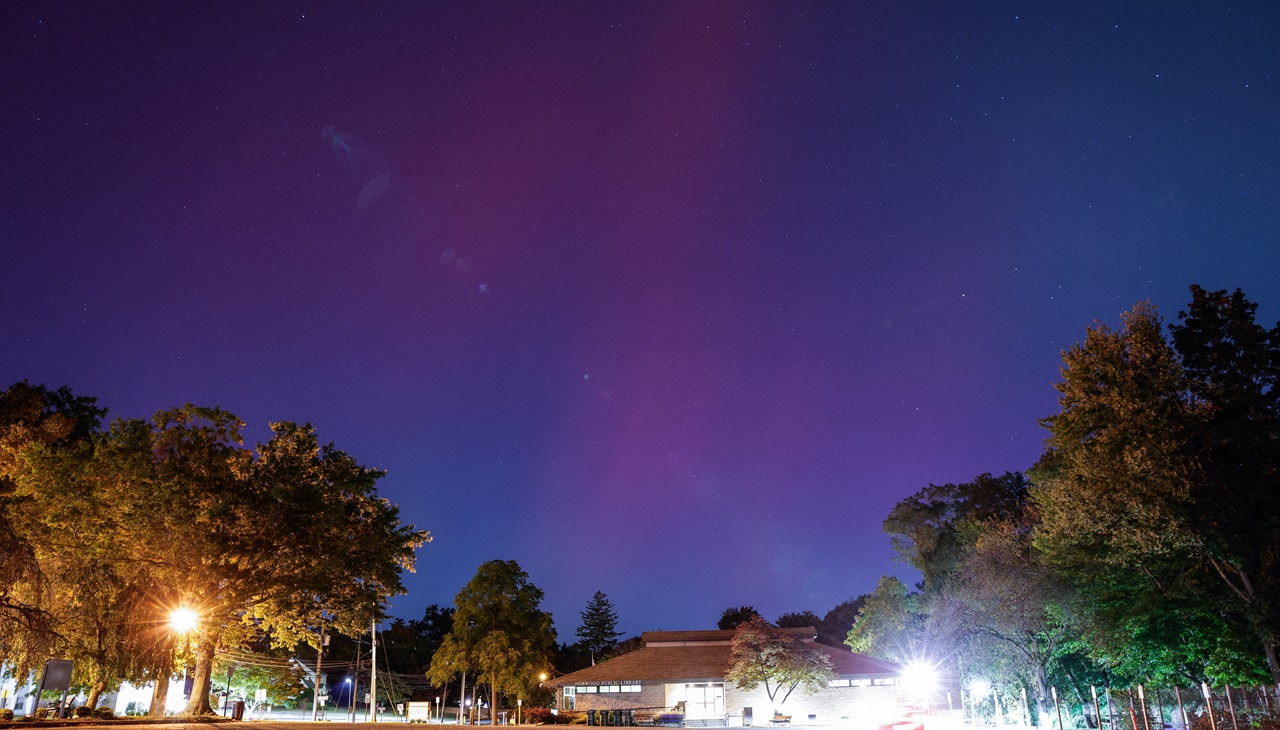
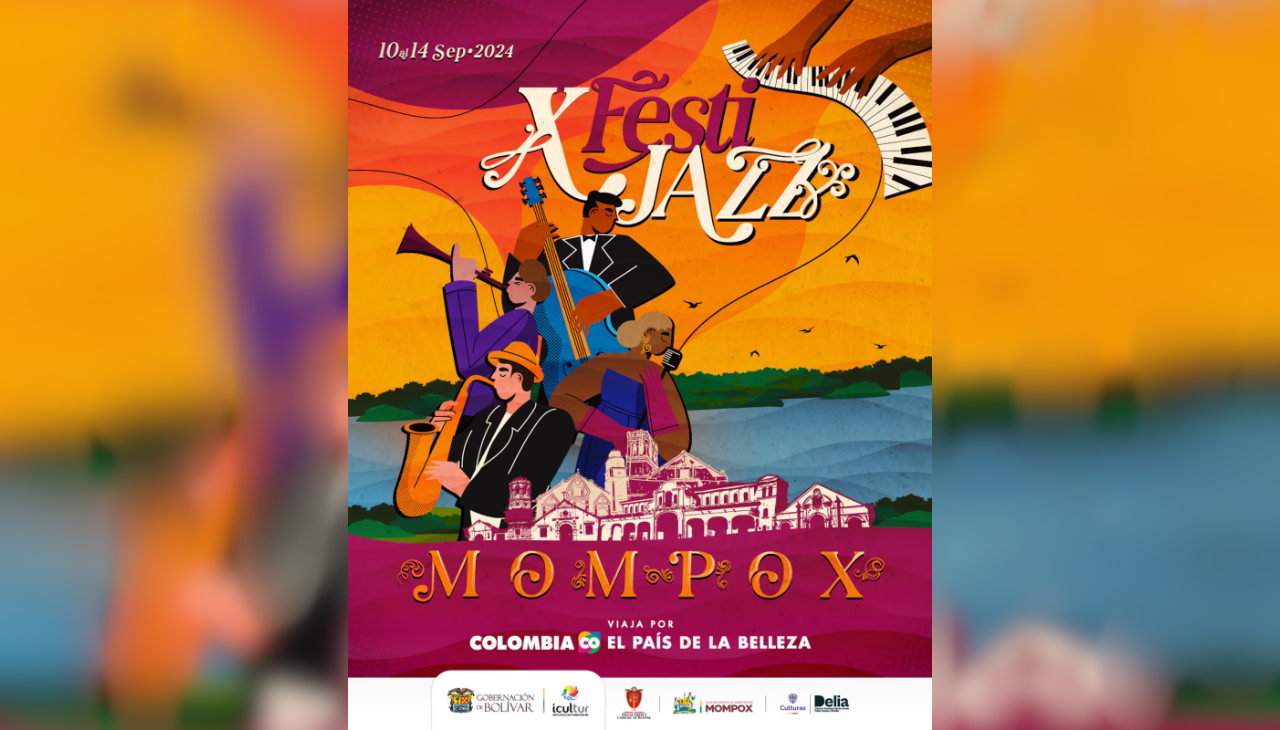

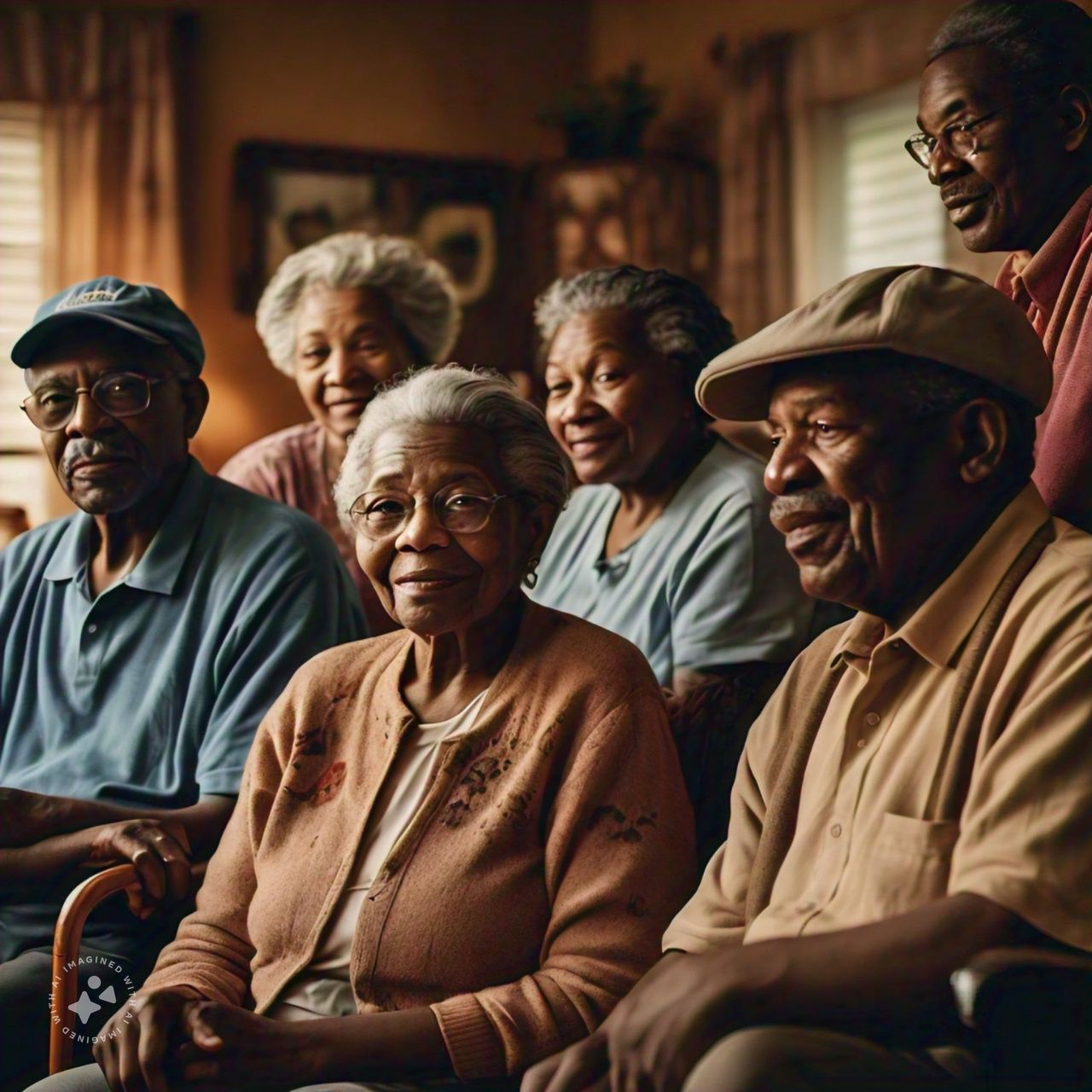

LEAVE A COMMENT:
Join the discussion! Leave a comment.